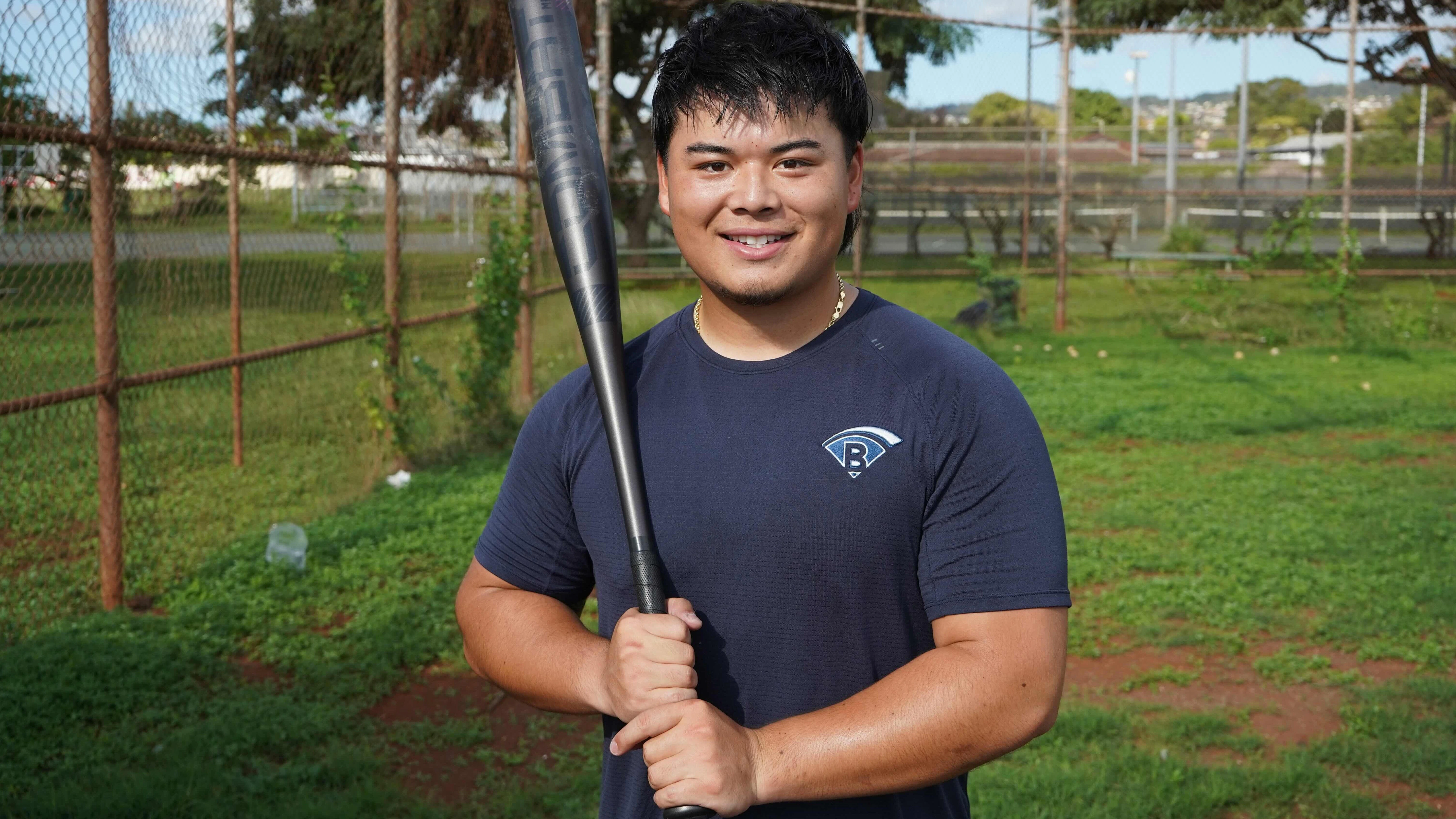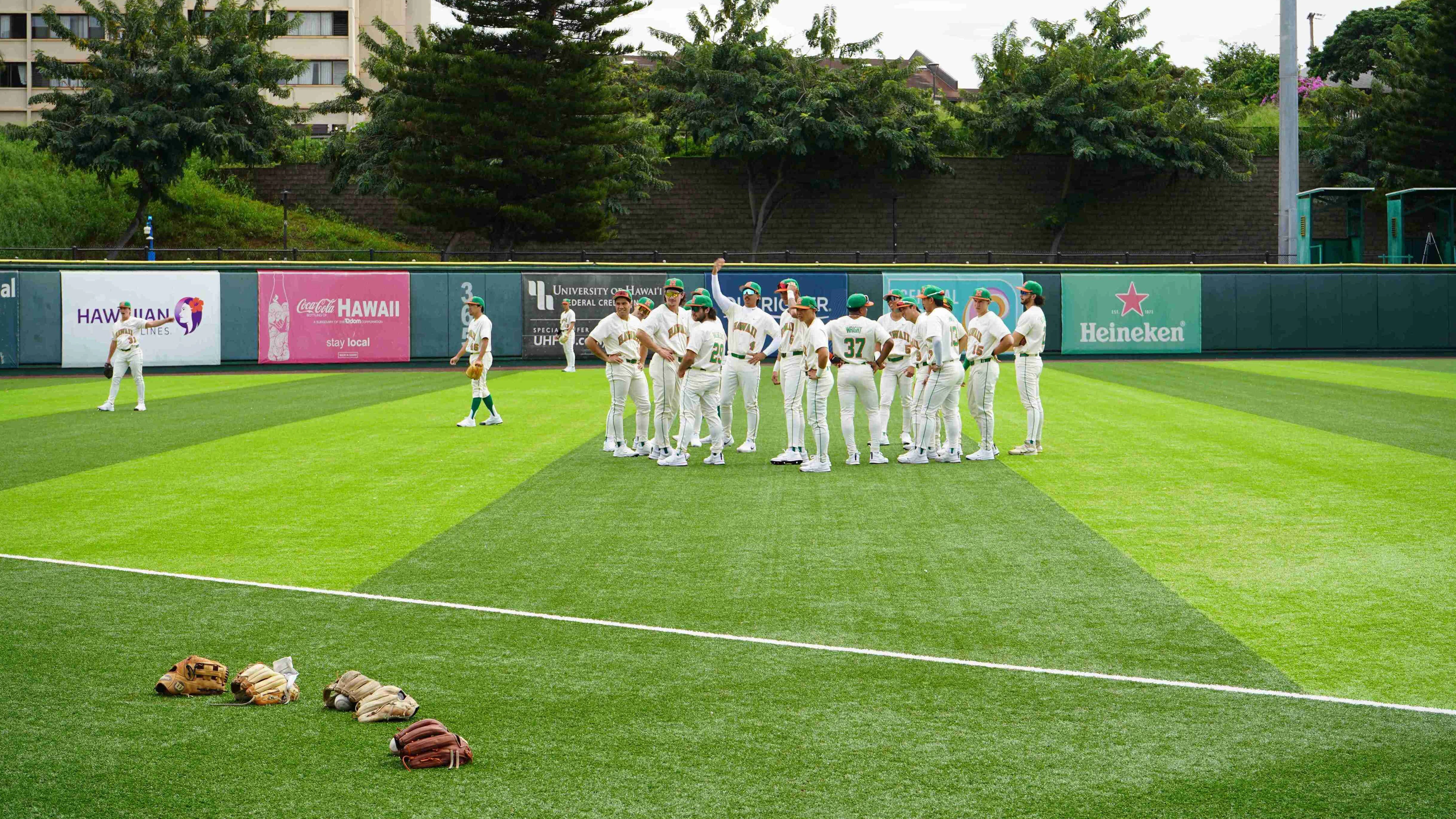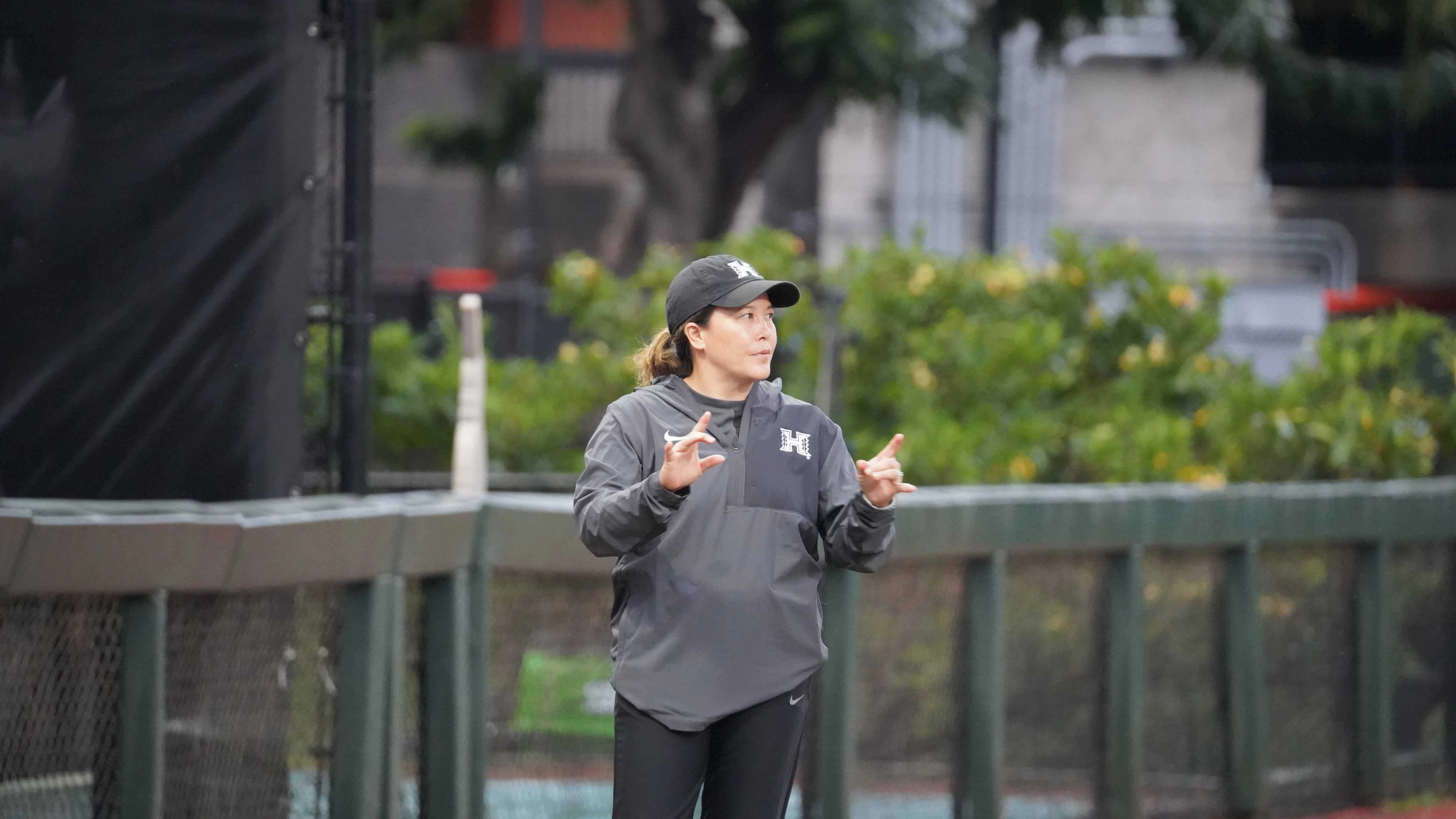Everything was trending towards 2024 being Spyros Chakas' year.
The star outside hitter was the latest elite international men's volleyball player to make his way to the University of Hawai‘i and embrace the Islands as much as it embraced him over the course of his college career. It's why he turned down pro overtures following his sophomore and junior seasons.
"You get offers, but it wasn't something that was enough for me to persuade me to leave Hawai‘i, and honestly, it would take a lot to get me out of Hawai‘i. I was having such a good time with my teammates, my friends in the islands, that I don't think that I would have given up on it," Chakas recently recalled to Aloha State Daily. "Especially after my third year, I've done three years of it. I might as well finish."
Chakas entered his senior year as the star player, floor captain and unquestioned leader for the Rainbow Warriors, who had won national titles in 2021 and 2022 and finished national runners-up in 2023.
After a team trip to Japan in the fall, the stage was set for Chakas to have a memorable senior season. The 'Bows were considered among the teams in the mix for national title contention, while Chakas was one of the preseason favorites for national player of the year.
"I was feeling really good going into that season. We had such a good time going to Japan, bonding as a team, and then just playing some really good volleyball. That was a great experience," said Chakas, the Most Outstanding Player in the 2022 NCAA Tournament. "The year started really well, and then going into the season, I was feeling probably my best physically that I felt my four years in Hawai‘i."
Then March 10 happened, and Chakas' college career was suddenly over.
In the fifth set of an intense championship match of the Outrigger Volleyball Invitational, a ball was for set for Chakas, which he swung straight into the UC Irvine block. He landed on his left leg and immediately went down, clutching his left knee. The Stan Sheriff Center crowd of 6,923 went silent.
The Rainbow Warriors went on to win the match, and Chakas won MVP of the tournament. Following the match, Chakas' teammates went to the training room to check in on him. He knew something was off immediately, but it wasn't confirmed until the next day.
Chakas went home and was only able to sleep for about an hour before heading to the hospital for a 7 a.m. MRI, which revealed a full ACL tear, a third degree MCL tear and a first degree meniscus tear. Chakas had to wait an additional 10 days to get surgery to allow the swelling to go down.
From there, a laborious rehabilitation process — both mentally and physically — ensued. His first physical therapy session took place the day after surgery.
"That was pretty intense, learning how to live with crutches. The first month and a half being stuck in bed, only getting up to go to the toilet was an interesting time," he recalled with a grin.
During UH's five-set win over UC Santa Barbara on March 30, Chakas was part of the starting lineup as the second libero and sat on the bench, a respite from the early recovery stages he was facing at home.
The Rainbow Warriors went 5-5 in Big West play without Chakas, falling to UC Irvine in the conference semifinals before missing the NCAA Tournament for the first time since 2018.
In exchanging injury stories with others, Chakas realized his wasn't painful as others he had talked to, although he faced a long road ahead to get to where he once was.
As for his pro prospects, a team in Germany that was prepared to negotiate with Chakas after the season ended withdrew their interest following the injury.
"I saw it all as a lesson, because it was not that I could control whether I got injured or not," he said. "I could only control how I dealt with it. And I think I did a pretty decent job controlling it and learning through it."
Chakas expressed gratitude towards the athletic training staff at UH. With Raiki Miyazato, he was able to learn to slowly get off his crutches and stand on his two feet again, supplemented with workouts at the pool. Meanwhile, strength coach Josh Elms introduced Chakas to leg exercises with the goal of not letting his leg atrophy. Chakas says in the early stages of rehab, his left leg was "skinny as hell."
The countless hours in bed allowed Chakas to self-reflect and learn more about himself. He even watched the fateful match against UC Irvine in which he suffered the injury.
"I was rewatching the game against Irvine that I got hurt, and then I was watching how tense I was and how hard I was playing. I was like, OK, maybe I need to calm down a little bit sometimes. That was an important lesson," Chakas said. "Getting hurt obviously wasn't great for me or for the team. I believe that we could have done way better. But that doesn't take away the effort that the boys put in after I got hurt. I was really proud to watch them battle every game out, play their hearts out. ... Overall, not the way that I wanted it to go, but there's good things to keep from that season."
Teammates and coaches would frequently visit Chakas, making him plates from the team's postgame spread. Thousands from around the volleyball world messaged him, wishing him well in the recovery process. But when he was left to his own devices, that's when Chakas grew the most as a person.
"The physical part, you get used to it because you don't really have a choice. It's the mental part that you grow up a lot, because you just learn to face adversity in a different way, because it takes something away from you that you're used to doing for so many years. I played volleyball for so many years, and it's what I enjoy to do. So when that is being taken away from you, you just need to find other things to do," Chakas said. "For example, my enjoyment from music grew even more. I still remember being on crutches, and I'll go to (former teammate) Max Rosenfeld's house, and we would just make music together, and we'll just have good times.
"That would be something that would distract me from my injury or any other issues that might have occurred. You find out so many more things about yourself, because you're not only focused on playing volleyball or winning games. There's so many other sides that you discover. I think that's the main thing that I keep from from this process: Just expanding my character and my interests as as a whole."
Chakas graduated from UH-Mānoa with a BA in psychology and then signed his first pro contract with AONS Milon in his native Greece, the same club team he played with as an amateur. With fond memories of the jam sessions he had with Rosenfeld, the first thing he bought after he landed in Athens was a drum set.
Physical therapy for Chakas continued after moving back to Greece. After spending months working on his recovery, he began practicing with the team about 10 months following his injury.
He returned to action on Feb. 19 — less than 11 months after surgery — and delivered five kills and four service aces against Hefestus Florinas.
AONS Milon is currently in a best-of-five series in the Greek playoffs against Olympiacos, one of the most prominent multi-sport clubs in Greece.
"It's rewarding," Chakas says of his return to the court. "There's some minor muscle issues that are pretty normal to occur after being out for so long, but I've been jumping well like I did before. I'm even stronger than I was before, so that's really encouraging."
While the injury Chakas had against UC Irvine ended his season, it certainly didn't end his career. After enduring the hardest parts of the recovery process, he's eager to ascend up the pro ranks in Europe.
"There's definitely goals in mind of where I want to go and where I want to play, but these goals won't achieve themselves," Chakas said. "I'm the one that has to be putting in the work every day if I want to achieve those goals. So, for example, if I want to go play in Italy, that will not happen if I just manifest or if I pray about it. I gotta actually put in the work. So, yeah, it's still a day by day process, trying to get a little better every day, whether that's physically, mentally or or both."
With a 12-hour time difference between Greece and Hawai‘i, Chakas said he's not able to watch as many matches live, but he'll watch them in full once they're uploaded on YouTube. He remains in touch with former teammates that are still in college, such as starting UH setter Tread Rosenthal and middle blocker Kurt Nusterer. He's hoping to visit the islands soon and show his friends some of the scenery, as well as reunite with poke bowls and spam musubi.
"It's the best volleyball community I've ever seen in my life. People that actually care about the sport and love the sport and really, really good people that I came in contact with and made friends with over the years, and Hawai‘i is an amazing place itself. The Islands, the nature, the ocean, the mountains, it's something that I'll never forget, and I'll always want to come back to show my friends from here that I was living in Hawai‘i for four years. The food was pretty good, not gonna lie, some food that we don't have in this side of the world."

In the year since Chakas suffered his first major injury, he believes he's able to play at a high level again because of his short-term mentality. Have one good day at a time, and suddenly the starting point is a distant memory.
"The first thing is that when adversity comes, you can't control what's going to happen to you, but you can control how you're going to deal with it," he said. "When I got injured, my initial thoughts, I was angry and sad and pissed about it. But then I realized that there's no point in me wasting energy in being emotional about it. But instead, I just gotta do my best to come back from it, go to PT, do my strengthening and all that. Just controlling the way that you come back from adversity, and not letting it get you stuck in a place where you don't want to be for a long time.
"And then the second thing would be to take it day by day. I know that's a cliché, but when you're in a place like I said before, stuck in bed, not being able to get up, thinking long term is not really going to get you anywhere. You just gotta think like, 'OK, I'm gonna do this now.' I'm gonna do these things today to be better, feel better, and then get up the next morning and do the same things. I also had many messages from either kids that have gone through this injury or parents of kids that are going through these injuries. The messages that I would send to them was just be patient. Take it day by day, and be good on yourself. Love yourself."
Christian Shimabuku can be reached at christian@alohastatedaily.com.





